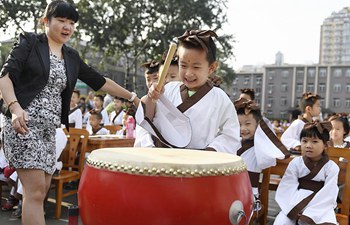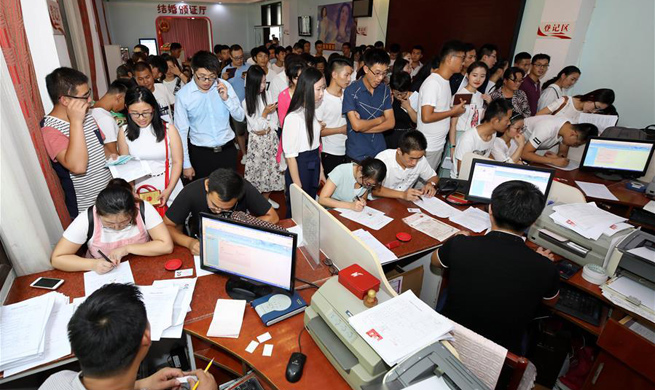BEIJING, Aug. 28 (Xinhua) -- China's top legislature began discussing bills on two draft revisions of laws on the organization of courts and procuratorates to legislate judicial reform measures.
Lawmakers will deliberate the bills at the bi-monthly session of the National People's Congress (NPC) Standing Committee, which opened Monday.
Compared with the current law, the draft revision of the Organic Law of the People's Courts adds stipulations about maritime courts, intellectual property rights (IPR) courts and the circuit courts of the Supreme People's Court, according to a document delivered by the NPC's Internal and Judicial Affairs Committee at the session.
To strengthen judges' responsibility, the draft also provides organizational and operational rules for collegiate bench trials and sole-judge trials as well as duties of relevant judicial personnel, the document said.
Another document by the committee said the draft revision to the Organic Law of the People's Procuratorates includes new provisions to meet the needs of deepening the country's supervisory system reform, which requires major adjustments to procuratorates' power and personnel rules.
The draft also legislates the power of prosecutors to lodge public interest lawsuits according to law.
Both drafts spell out protections for judicial personnel carrying out their duties.
According to the drafts, judges and prosecutors shall not be removed, demoted, dismissed or punished without statutory reason and due process. Any act of harassment, insult, threat or violence against judges, prosecutors or their close relatives will be seriously punished.
The NPC Standing Committee session will also include discussion of proposals about draft amendments to eight laws including the Judges Law.
According to the drafts, a national exam for legal profession admission will be required for more legal professionals beyond judges, prosecutors, lawyers and notaries. These include administrative review and administrative adjudication workers, legal advisors at governmental agencies, and law-related arbitrators.

















